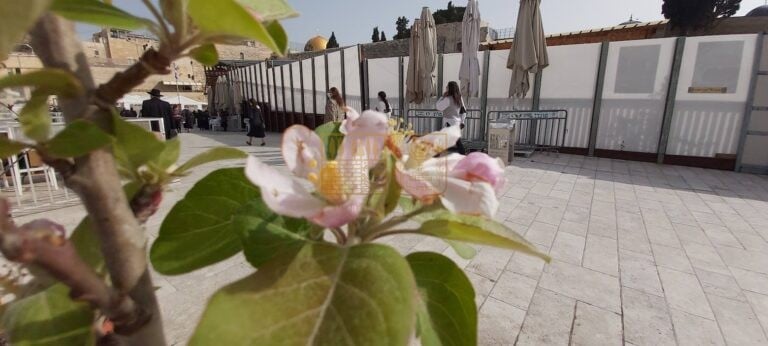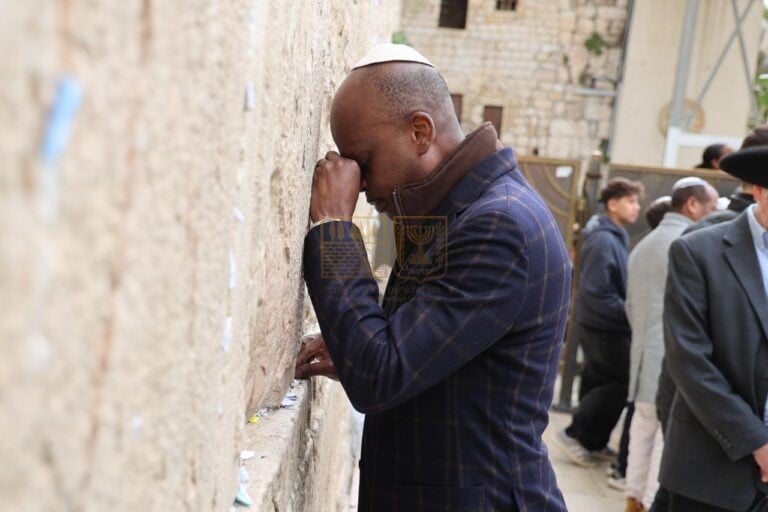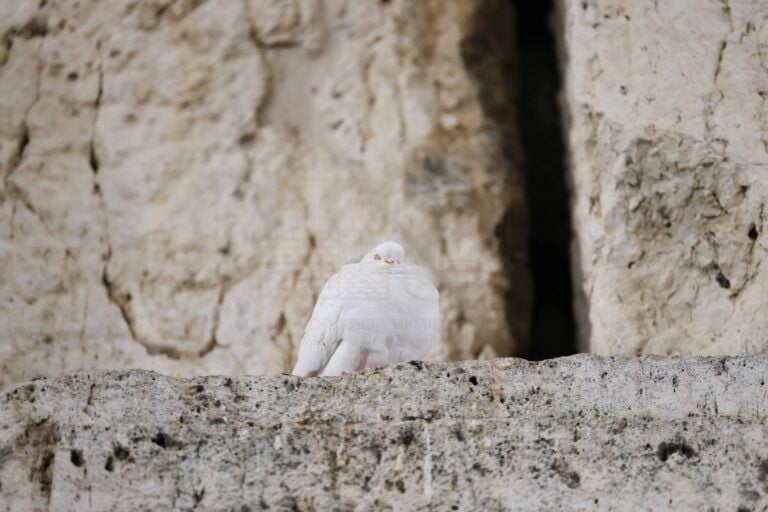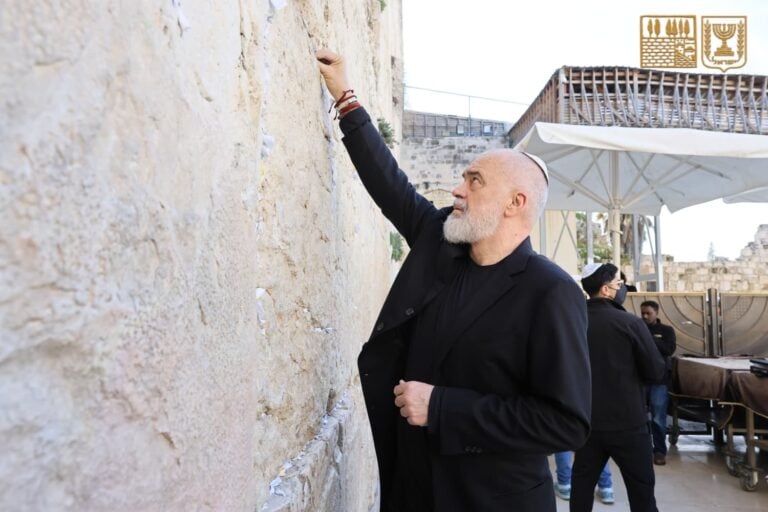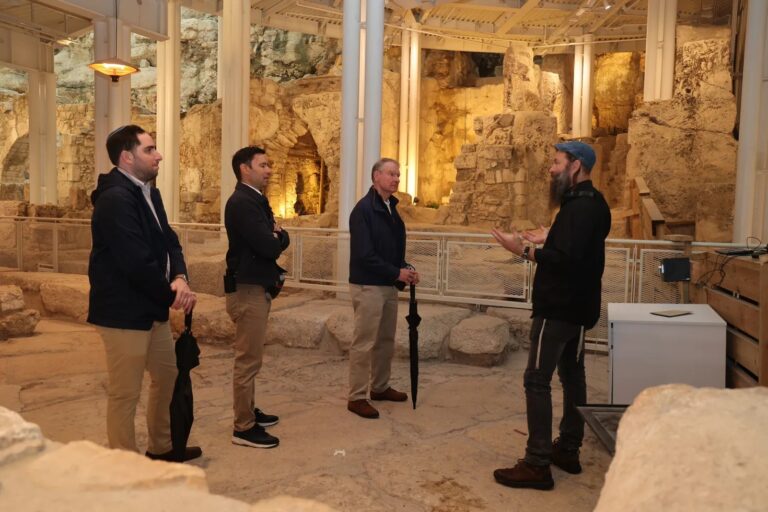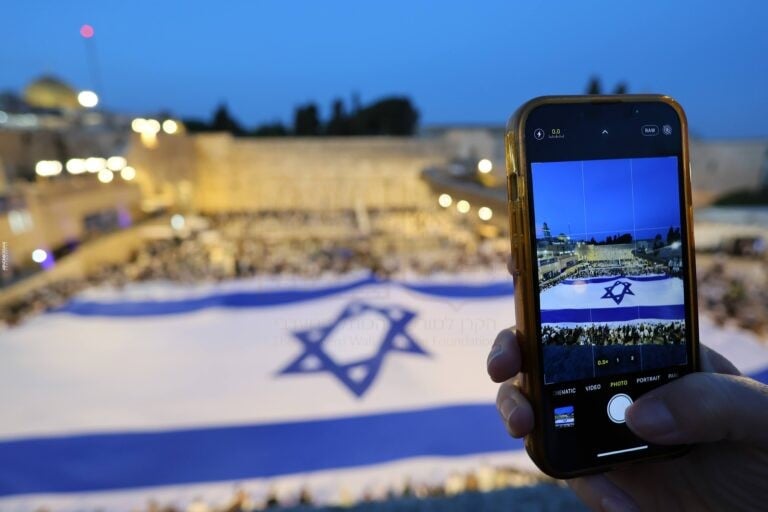|
Getting your Trinity Audio player ready...
|
Parashat Vayetze 5785
By Rabbi Shmuel Rabinowitz, Rabbi of the Western Wall and Holy Sites
Parashat Vayetze begins with the story of Jacob leaving Be’er Sheva, departing from his parents’ home, and embarking on a journey to establish his family—the future House of Israel. This is not merely an anxious escape from his brother Esau but a purposeful mission to fulfill his calling to establish the chosen nation.
Every stage of Jacob’s journey, as described in the Torah, represents an essential milestone he must pass before meeting Rachel and Leah—the matriarchs of the nation—and building the House of Israel with them. These milestones provide lessons for us, his descendants, on navigating the challenges of our own lives.
A midrash on this week’s Torah portion interprets the well-known verse from Psalms:
“A song of ascents: I lift my eyes to the mountains (he’harim)”
(Psalms 121:1)
Jacob, who, leaving Be’er Sheva, reflects on a similar journey made decades earlier by Abraham’s servant Eliezer, who sought Rebecca to be Isaac’s wife. Jacob says to himself:
“I lift my eyes to the ancestors (he’horim).”
Similarly, every Jew, a descendant of the patriarchs and matriarchs, when facing difficulty or confusion, can lift their eyes to the ways of their ancestors and learn from their paths.
As the sun begins to set, Jacob halts his journey and spends the night at Mount Moriah—the site where his grandfather Abraham bound his father Isaac, destined to become the eternal location of God’s presence, where the Holy Temples would stand.
Here, Jacob dreams a remarkable dream described in the verse:
“And behold, a ladder was set on the earth, and its top reached heaven; and behold, the angels of God were ascending and descending on it.”
(Genesis 28:12)
Clearly, the ladder is not functional, as angels do not require it to ascend or descend. Angels, spiritual beings of great might, do not need physical tools or means of transition. Instead, the ladder is a metaphor for the path every one of Jacob’s descendants will walk throughout their lives in this world.
The ladder symbolizes the mission of a Jew: to ascend and elevate, to sanctify the physical, and to uplift the mundane toward the sublime. The ladder is rooted on the earth yet reaches heavenward, allowing its top to connect to the divine heights.
Rabbi Chaim of Volozhin (1749–1821), founder of the Volozhin Yeshiva which operated throughout the 19th century in the Russian Empire, notes in his book Nefesh HaChaim the linguistic nuance of the phrase “mu’tzav artza” (set on the earth) instead of the more conventional “mu’tzav ba’aretz” (set on the land). He explains that the phrasing suggests a destination. The term artza indicates that the earth itself is also a destination, alongside the heavens.
Judaism presents a profound dual challenge. On the one hand, it sets before us a lofty, almost unimaginable goal. As a Jew, a descendant of the patriarchs and matriarchs, you are called to lift your eyes heavenward and align all your actions with the highest realms of existence. Even while living in the physical world, your mind must aspire to reach the heavens. We are tasked with constant spiritual growth and ascent.
Yet this spiritual challenge has a complementary aspect. We are entrusted with the mission of bringing heaven down to earth—infusing spiritual meaning into daily routines and sanctifying the mundane. This duality is the essence of the ladder’s dual purpose: it reaches both heavenward and – to its second destination – earthward.
At times, we might feel insignificant and doubt our ability to make an impact. We may ask ourselves, “What can I contribute to the nation?” and underestimate our own worth. However, this past year of war has revealed among us radiant souls whose heads reach the heavens—remarkable individuals who serve as sources of inspiration to us all.
Let us remember that each of us is a ladder set on the earth, capable of drawing down divine light to illuminate the world and its inhabitants.
